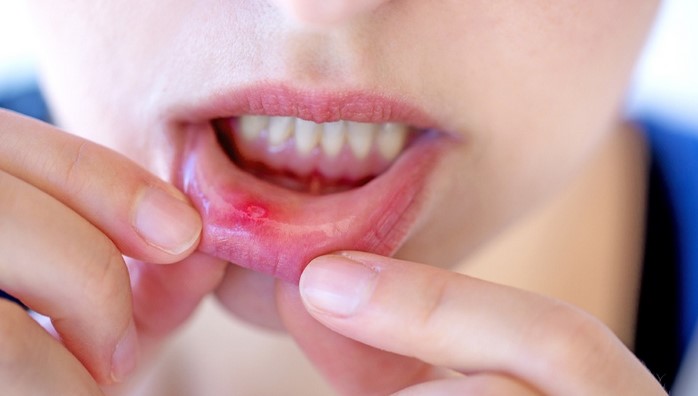Natural Remedies: Best Treatment for Cold Sores Revealed
Dealing with the discomfort of cold sores can be both frustrating and uncomfortable. However, there are effective treatments available that can help alleviate symptoms and promote faster healing. Whether you’re seeking over-the-counter options or prescription medications, understanding the available treatments can make a significant difference in managing cold sores and reducing their impact on your daily life.

Cold sores, also known as fever blisters, are a common viral infection caused by the herpes simplex virus (HSV). These small, fluid-filled blisters usually appear on or around the lips, causing discomfort and embarrassment for those who suffer from them. While there is no cure for the herpes simplex virus, there are several natural remedies that have been shown to effectively alleviate symptoms and speed up the healing process. In this article, we’ll delve into the best natural treatments for cold sores that have been revealed through research and anecdotal evidence.
1. Lysine Supplementation:
Lysine, an essential amino acid, has been found to inhibit the replication of the herpes simplex virus. Foods rich in lysine include dairy products, legumes, fish, and certain meats. However, lysine supplements are also available and have been shown to help reduce the frequency and severity of cold sore outbreaks. Regular lysine intake can interfere with the virus’s ability to utilize arginine, another amino acid that supports its replication. By maintaining a higher lysine-to-arginine ratio in the body, individuals can potentially prevent or lessen the duration of cold sore outbreaks.
2. Lemon Balm (Melissa officinalis):
Lemon balm is a medicinal herb with antiviral properties that have been traditionally used to treat various ailments. Studies have shown that applying a lemon balm ointment to cold sores can significantly reduce their healing time and symptoms. The plant contains compounds like rosmarinic acid, which inhibits the herpes virus’s ability to penetrate cells and cause infection. Lemon balm creams or extracts can be directly applied to the affected area for relief.
3. Tea Tree Oil:
Tea tree oil, derived from the leaves of the Melaleuca alternifolia tree, is renowned for its potent antiviral and antibacterial properties. When applied topically, it can help fight off the herpes virus and prevent secondary infections caused by scratching. However, it’s essential to dilute tea tree oil before use, as it can be quite potent and might cause skin irritation in its undiluted form.
4. Aloe Vera Gel:
Aloe vera has long been celebrated for its soothing properties, especially for skin-related issues. Applying pure aloe vera gel to cold sores can provide relief from pain, burning, and itching. It also forms a protective barrier that helps prevent bacterial infections. The cooling sensation of aloe vera can be particularly soothing for inflamed cold sores.
5. Echinacea:
Echinacea is an immune-boosting herb that has gained popularity for its potential to reduce the severity and duration of cold sores. By enhancing the body’s immune response, echinacea can help the body fight off the herpes virus more effectively. It is available in various forms, including teas, capsules, and extracts.
6. Ice Therapy:
Applying ice to cold sores can help reduce inflammation, numb the area, and alleviate discomfort. Cold compresses can slow down the virus’s ability to replicate, potentially shortening the healing time. However, it’s important not to apply ice directly to the skin; instead, wrap it in a clean cloth or towel before use.
7. Honey:
Raw honey boasts powerful antiviral and wound-healing properties. Applying honey directly to cold sores can help speed up the healing process and provide relief from pain and itching. Manuka honey, in particular, has demonstrated strong antiviral effects due to its high concentration of bioactive compounds.
8. Stress Management:
Stress is a known trigger for cold sore outbreaks, as it weakens the immune system and activates the herpes virus. Practicing stress-reduction techniques such as meditation, yoga, deep breathing, and regular exercise can help prevent or reduce the frequency of cold sore flare-ups.
9. L-lysine Lip Balm:
Incorporating L-lysine into a lip balm can provide ongoing protection against cold sores, especially for individuals prone to frequent outbreaks. Regular application of an L-lysine-infused lip balm can help maintain the lysine-to-arginine ratio on the lips, creating an environment less conducive to the herpes virus’s replication.
10. Dietary Adjustments:
Certain foods can trigger cold sore outbreaks, particularly those high in arginine. These foods include chocolate, nuts, and certain grains. Adjusting your diet to reduce the consumption of arginine-rich foods and increase lysine-rich foods might help prevent cold sore recurrence.
In conclusion, while cold sores can be both uncomfortable and unsightly, a range of natural remedies can help manage symptoms and promote faster healing. These remedies harness the power of various herbs, oils, and compounds to fight off the herpes simplex virus and provide relief from pain, itching, and inflammation. It’s important to note that individual responses to these remedies may vary, and what works for one person may not work for another. If cold sores are a persistent concern, consulting a healthcare professional is recommended to determine the best course of treatment.
Remember that prevention is key. Maintaining a healthy lifestyle, managing stress, and paying attention to your diet can all contribute to minimizing the frequency and severity of cold sore outbreaks. With the insights provided in this article, you can now explore natural remedies and find the best treatment that works for you, allowing you to face the world with confidence, even during cold sore flare-ups.